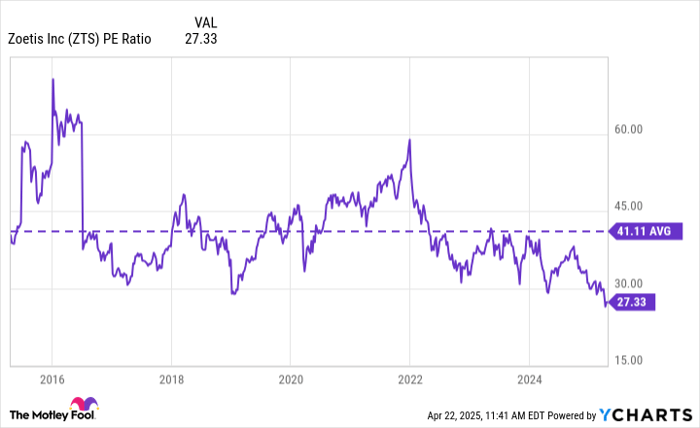Big Tech’s Silent Replacement: AI Takes Over Jobs
Let’s not kid ourselves. This isn’t about efficiency; it’s about replacement.
Something curious is occurring within Big Tech. Major companies are drastically reducing their workforce. Departments such as HR, customer support, and various roles from writers to analysts are seeing layoffs, all amidst the rollout of new AI tools touted to “boost productivity,” “streamline operations,” and “enhance customer experience.”
However, the reality is clear: this isn’t merely an efficiency drive. It’s about replacement.
Big Tech is replacing workers with AI.
We are witnessing what could be early signs of a significant disruption in employment due to AI, with serious implications for workers, the economy, and investors alike.
Step One: Layoffs Across the Board
In recent months, leading companies have engaged in widespread layoffs across various sectors including tech, media, and finance.
- Meta (META) has announced another round of layoffs, targeting middle management and software engineers, in addition to previous cuts across other departments.
- Google (GOOG) has reduced hundreds of jobs in ad sales and support, including roles deemed “redundant.” This also includes layoffs in their HR and cloud units.
- Amazon (AMZN) cut jobs in Alexa, HR, and devices, stating it is “refocusing resources” on AI development.
- Microsoft (MSFT) has laid off staff from LinkedIn, GitHub, and Azure, particularly in operations and sales roles.
- International Business Machines (IBM) has begun reducing thousands of back-office positions, especially in HR, after CEO Arvind Krishna indicated that 30% of non-customer-facing roles would be replaced by AI over the next five years.
Layoffs aren’t exclusive to tech, as illustrated below:
- BuzzFeed, Business Insider, and Gannett have all reduced editorial staff while testing AI-generated content.
- Goldman Sachs and JPMorgan are experimenting with AI tools for compliance and documentation, effectively replacing interns and entry-level analysts.
A clear pattern emerges: support staff, engineers, writers, HR teams, marketers, and junior analysts are being phased out.
Step Two: Gradual AI Implementation
Here’s where it gets compelling.
These layoffs often coincide with major AI announcements from the respective companies.
- Following the reduction of support staff, Google expanded its Gemini features for Workspace, incorporating AI-powered writing and customer service automation.
- After cutting jobs in its Alexa division, Amazon unveiled Rufus, its new AI shopping assistant, and noted that generative AI is being utilized to produce product descriptions and code.
- As Meta announced layoffs, CEO Mark Zuckerberg projected that by 2025, the company will develop AI agents comparable to mid-level engineers.
- Microsoft reduced LinkedIn and GitHub staff while enhancing its Copilot tools, which now include features for automatic code review and writing.
While they avoid explicit language about “replacing humans with AI,” the actions indicate otherwise—layoffs followed by AI rollouts aiming to increase profit margins.
The Transformation of Big Tech
This situation represents more than mere reorganization. It marks the onset of a significant labor shift, already reflected in market activity.
Companies are experiencing stock price increases as they replace human workers with cost-effective AI solutions.
- Meta’s operating profit margin surged from 23% in early 2023 to 42% today.
- Google’s margin rose from 25% to 32%.
- Amazon’s margin jumped from 2% to over 10%.
Stocks are reflecting these changes:
- Amazon’s stock has more than doubled since early 2023.
- Google’s stock has surged by over 150%.
- Meta’s stock has increased by about 300%.
Wall Street clearly signals that replacing workers with AI is a sound strategy.
Understanding the AI Jobs Apocalypse
The reality is stark: we are facing an AI jobs apocalypse. Major corporations are actively developing tools that automate various white-collar tasks, including coding, writing, and customer service roles.
They may not explicitly state their intent, but the data reflects a current reality of workforce changes. While this shift raises impactful questions about jobs, it simultaneously offers substantial opportunities for investors.
The Bottom Line
The AI jobs apocalypse is unfolding. Many headlines may downplay this reality; however, job boards and financial data tell a different story:
- Jobs are disappearing.
- AI tools are taking their place.
- Stock prices are on the rise.
This shift is not just a technological advancement; it is an economic transformation, akin to historical shifts such as the advent of steam, electricity, and the internet.
Being strategically positioned will yield significant rewards during this evolution.
As the AI revolution progresses, it’s crucial to identify emerging opportunities for investment.
For those seeking to capitalize on the AI jobs apocalypse, consider exploring promising AI 2.0 stocks—companies poised to lead the next wave of the AI labor revolution.
On the date of publication, Luke Lango did not hold any positions in the securities mentioned in this article.
For inquiries or feedback, contact us at [email protected].




